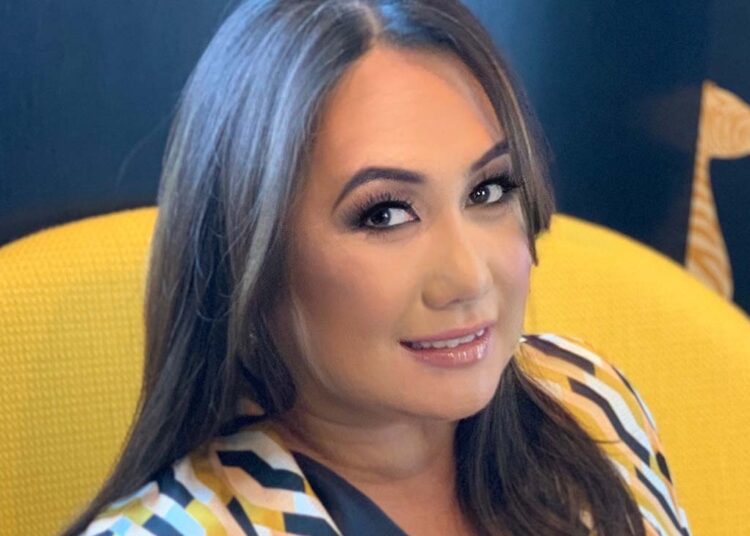Melissa de la Cruz is the New York Times best-selling author of the Blue Bloods series, The Ring and the Crown and 29 Dates. She has written over fifty books, many of which have also topped USA Today, Wall Street Journal and Los Angeles Times bestseller lists. Melissa is also the founder of Melissa de la Cruz Studio at Disney Publishing, creating package books for all genres and ages.
We chat with Melissa about her career as an author, her latest thriller Going Dark and whether another novel is in the works.
How has 2023 been for you so far?
It’s been a whirlwind, just very busy. I feel like I haven’t had the time to breathe since December 2022. But that’s okay! I feel lucky to be busy, and I’m looking forward to a fun summer.
Can you tell us about your journey to a career as an author?
I’ve wanted to be an author since I was eight years old. I sold my first novel at 27, so it felt like it took twenty years lol! I graduated from Columbia and I had a day job, I wrote my first novel at 22, but it took five years to sell a book. My third novel actually became my first published novel, and I haven’t looked back since. I remember once I quit my day job I had sold five projects, from an anthology to ghost written memoirs, to two YA novels.
Do you have a career highlight you’d like to mention?
The first time I hit the NYT bestseller list in 2008 for Blue Bloods: Revelations. I was on tour in Arizona and we had a dance party with my readers. It was super fun to celebrate with everyone who loved the book. My dad was still alive – he died the next year. As he said “I’m so happy I have a headache.” By then I had been writing books for a decade. It was a very sweet victory
Your latest thriller, Going Dark, touches on some areas of debate that are not always spoken about to much degree such as missing women of colour, and the impact of social media on young people. What was your inspiration for writing this novel?
I was shocked at how much I knew about the Gaby Petito case, just the level of detail we all knew about the case due to the intense and relentless media coverage. I was equally shocked to discover there were so many missing women of color whose stories we never heard about. They didn’t command the attention that missing white women did. So the book came out from anger, and a sense of wanting to highlight this discrepancy but also still tell an entertaining story that was not exploitative.
What do you feel is the impact of social media on the younger generation? What is the solution?
Obviously social media is so much of their lives, and it’s not good for your mental health if you’re just idly scrolling while life passes you by. But I also think it’s so incredibly addictive, how do we get kids to put down their phones? We literally wrestle it out of our teenager’s hands every night. It’s a hard fight but we do it every day.
You can’t give up. I am happy to report that as you reinforce the idea that life beyond the phone and social media is preferable to just scrolling, she has figured out how to self-police her phone use as well. I think we just keep fighting that fight, we don’t give up. And obviously we try to do the same with our own lives. For me it’s not so much the phone that is the problem but the addiction to screens and working. Shutting out the incessant noise of world is so important to self-care.
There are eye-opening themes of race included in your novel. What can we do to highlight these issues around a lack of concern for missing women of colour?
I’m not sure. I think being aware of it is a step for sure. I’ve worked in magazines and newspapers, so I know the value placed on attractive photos. We live in a shallow culture, so it’s up to us to stand up against it and say that everyone who goes missing is valued. Every life is important, not just those whom the media can sensationalize.
How important is literature in covering news and information that is disregarded in national news coverage?
Sometimes I’m worried we’re just preaching to the choir. There are so few readers in our society, and those who read are already more empathetic and sympathetic to stories from people who are different from them. I think encouraging a love of reading at a young age, teaching our kids to think critically, to be skeptical of what they are consuming is crucial. I don’t know how much literature can combat it, but it feels encouraging when I hear about books with marginalized characters reaching a broader audience.
Is another novel in the works?
Mulling another thriller for sure. But also working on a lot of unannounced projects in middle grade, YA and adult. This year I have Blue Bloods: After Life coming out in July, and my big middle grade follow up to Disney’s Descendants, a series called The Super-Secret Octagon Valley Society which is a book that is “if Willy Wonka ran Google” with a great bunch of super smart and funny middle schoolers.
Then next year I have a YA fantasy duology starting with The Encanto’s Daughter which imagines the world of faerie from Filipino, Chinese and Spanish mythology.
Check out more Entertainment Now lifestyle news, reviews and interviews here.






